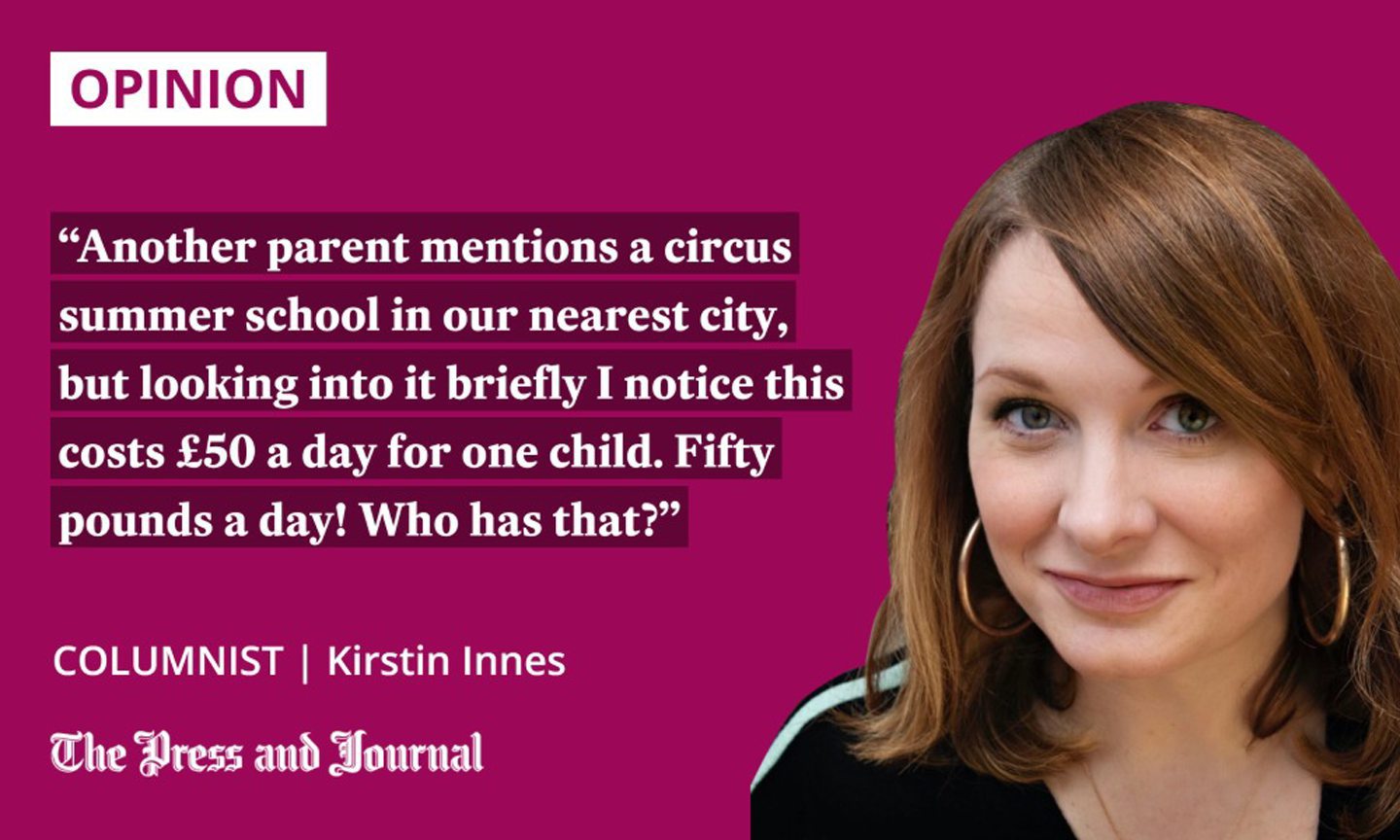School’s out for the summer! My brain, however, is not.
I’ve spent the last two months trying to patchwork together a seven-week childcare plan for two children in different age brackets, on a very tight budget. Want to share my stress? Go on. Have a little glimpse into my pre-summer internal monologue.
If I can get them into a free play scheme two villages away between 10am and 2pm, including £10 a day for me to work from a co-working space nearby, is that a worthwhile use of time and money?
The eldest wants to do a Gaelic music course in our nearest town after the organisation ran taster sessions at his school, but it’s only two hours a day and I can’t justify spending that much on something that is just an experience for him and not also providing me with a decent amount of working time.
Mini-holidays to visit grannies can be deputised but, as we had our children older than average, neither of our mums really have the energy to deal with two frenetically active little boys for longer than a couple of days.

Another parent mentions a circus summer school in our nearest city, but looking into it briefly I notice this costs £50 a day for one child. Fifty pounds a day! Who has that?
Seventy-one pounds for a week will get my eldest into a week-long theatre workshop; that seems like a good investment, although it’s only between 10am and 4pm, and one parent will have to take him there on the train and work from a local library. But, then, what to do about the younger one? Oh, there’s a smaller kids’ class for him too – no, that’s only 10am to 12pm, that’s no good.
The council has put on a subsidised multi-sports camp, but it’s at the the one leisure centre in the district I can’t reach by public transport, so I scout around for local parents whose kids are also attending to find some sort of lift share. At £15 per day (10am to 3pm) this is the most affordable option. But the parent who can drive my kids there on two days this summer needs to do nine-to-five hours, which is an extra £8 per day, so that’s £23 times two, plus a contribution towards petrol.
Neither of my kids are particularly interested in sport but, at this point, I’m feeling desperate. And I’m freelance, able to flex my hours around a 10am drop-off, work informally near wherever I’ve dropped my kids each week. If I was a minimum-wage, nine-to-five worker, entirely dependent on my local council for childcare, I would be paying £1,610 – more than half of the £2,917 I would earn in seven weeks – just to put them into a sports club. Lunch is £3 per day extra…
Here comes the parental guilt
Finally, I think I’ve probably got it sorted. I take a triumphant look at my meticulously scheduled calendar, with its colour-coding and multiple drop-offs and pick-ups across 12 different locations, assigned to each parent… and then the guilt hits. Am I not spending enough time with my children?
Right on cue, a parenting ideas Facebook group I follow to torment myself pops into my feed; someone has posted adorable pictures of the summer holiday bucket list project she does with her children every year, where they write down their hopes for the coming seven weeks and the mother promises to help achieve them.
We were going to try and nail riding a bike without stabilisers somewhere in there, weren’t we? Swimming? Doing the local library reading challenge?
The thing is, I can’t afford not to work right now. The sneery comment I’ve encountered on a couple of homeschooling Instagram accounts – “Why have kids if you aren’t going to spend time with them?” – swims back up to me, its privilege reeking.
Well, the mortgage needs paid. The children need to eat. And I’m only sending them away between 10am and 4pm. If I promise to be a present parent in the mornings, evenings and at weekends, would it be OK for me to earn some money, too?
Scotland needs a nationwide summer holiday strategy
Aberdeen City Council is putting on free summer holiday activities, with priority given to children from certain socio-economic backgrounds, which is lovely. But the activities are all only for a couple of hours, and require parental supervision.
Moray Council, whose school holidays start on June 30, has put up a holding page, claiming to have a comprehensive list of all the activities available, but which actually just contains links to its libraries and sports or leisure Facebook pages. Neither council seems to be offering much in the way of actual practical childcare support.
None of this feels sustainable, does it? Not for me personally, and not for parents generally, particularly during a cost-of-living crisis
None of this feels sustainable, does it? Not for me personally (last summer, the stress of all this additional organising and scheduling on top of work lead to a huge mental slump), and not for parents generally, particularly during a cost-of-living crisis.
This country needs a nationwide summer holiday strategy: safe, subsidised, accessible childcare summer camps for a variety of ages. If the economy depends on parents working over the next seven weeks, then it should support us to do so.
Kirstin Innes is the author of the novels Scabby Queen and Fishnet, and co-author of non-fiction book Brickwork: A Biography of the Arches

